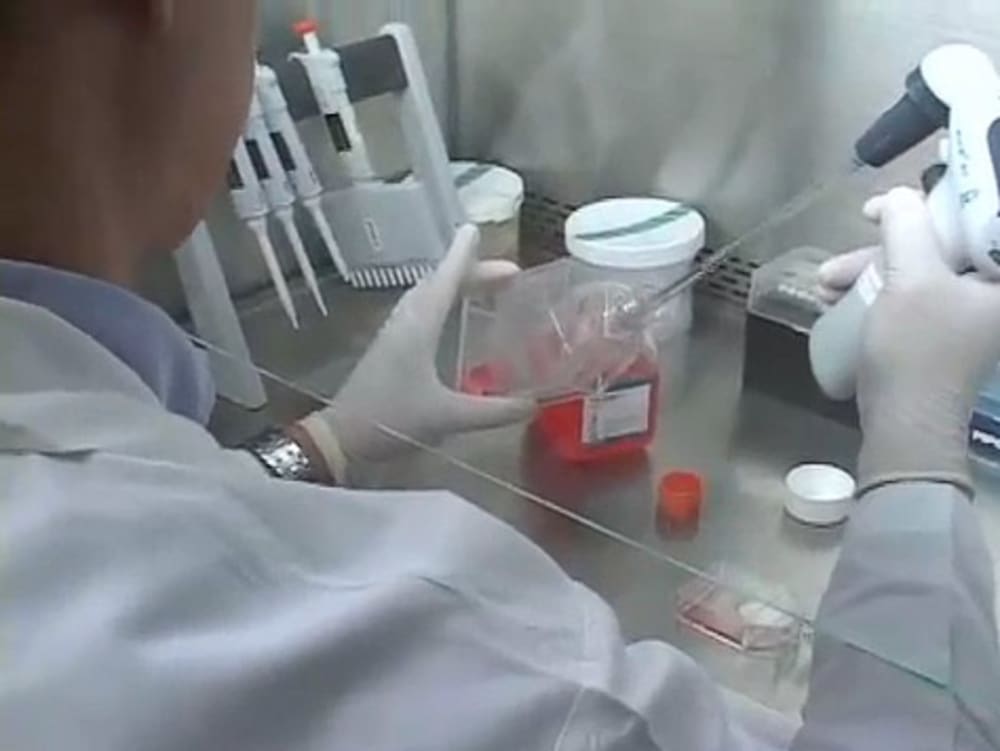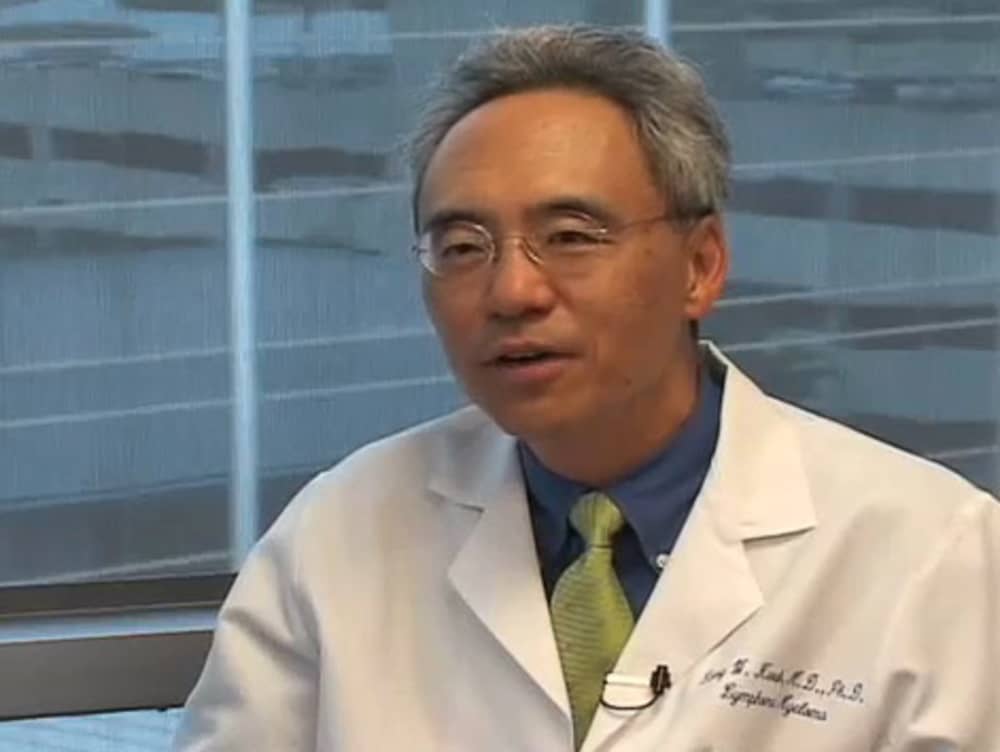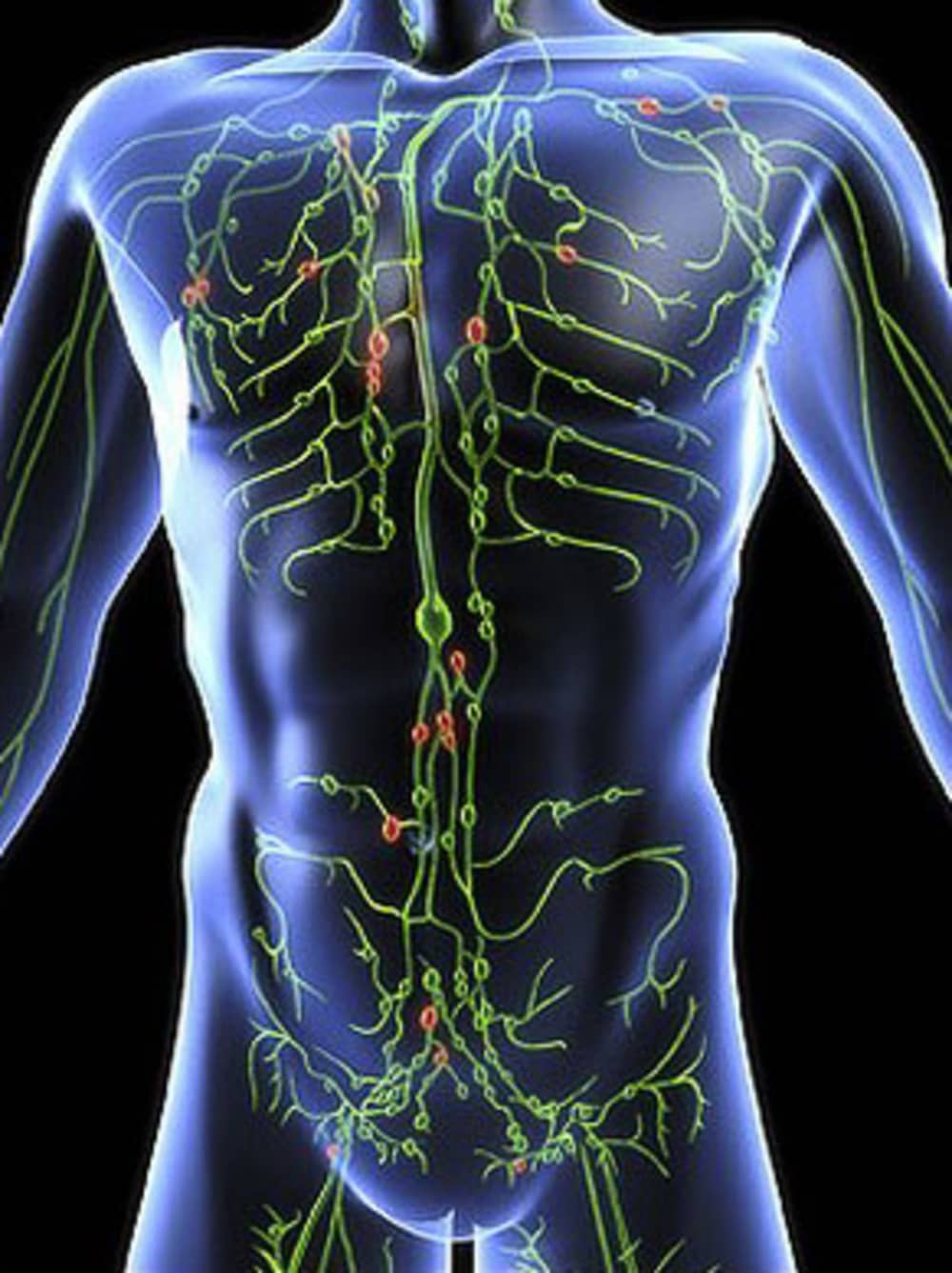M.D. Anderson's Time 100 man
The secret life of a medical celebrity: Houston's Larry Kwak, cancer vaccineextraordinaire
 When you're working in a medical lab, you don't expect to be hanging out with...
When you're working in a medical lab, you don't expect to be hanging out with... Taylor Swift one night.
Taylor Swift one night. But that's what happened to Dr. Larry Kwak after his vaccine for cancer ...
But that's what happened to Dr. Larry Kwak after his vaccine for cancer ... in the lymphatic system received international attention from Time magazine.
in the lymphatic system received international attention from Time magazine.
Spending a night in the company of such luminaries as the Clintons and Taylor Swift is not so unusual for the nation's top intelligentsia or Hollywood regulars. And while medical practitioners prefer the lab to the limelight, Houston's own Dr. Larry Kwak is in the midst of his 15 minutes of fame.
The 51-year-old Kwak was selected as among the Time 100, a compilation of the world's most influential people, ranging from Lady Gaga to the unassuming cancer researcher. For the 2010 list, Kwak was selected for his lymphoma vaccine innovation — the world's first cancer vaccine.
For the special issue, Olympic swimmer Eric Shanteau, who was diagnosed with testicular cancer before the 2008 Games, wrote:
I will never forget the day I heard the words, 'You have cancer.' ... Imagine a world in which doctors no longer have to utter the three words that change so many lives. Think about the freedom cancer survivors could have from constant worry about deadly recurrences. The studies now under way could one day make chemotherapy or radiation a thing of the past. I am proud to call myself a cancer survivor, but thanks to the work of Dr. Kwak, there may come a time when such a label is a just a distant memory."
Speaking with the man himself, one wouldn't necessarily guess that he's the preeminent researcher in his field. Kwak is an unassuming native of Lawrence, Kan., where his father was on the faculty of the University of Kansas as a physics professor. Growing up embedded in the university community, Kwak had his finger on the pulse of medical innovations.
"It gave me a tremendous opportunity to tap into the resources of the university even as a high school student," he says. "That's where I got my first exposure."
While in high school student, he enrolled in entry-level university classes. "That's where I got introduced to medical research and got turned on to the idea that one could harness the immune system to fight cancer, and that's the idea that I've been following all of my life," he says.
Kwak's schooling and research has placed him in all corners of the country, from an accelerated undergraduate-medical school-PhD program at Northwestern University, to training at Stanford and then a 12-year run heading the vaccine biology section at the National Cancer Institute in Bethesda, Md., where he first began trials on a lymphoma vaccine. The research he conducted at the NCI was the precedent that led him to the M.D. Anderson Cancer Center in Houston six and a half years ago.
He recalls, "About two months after we moved here, my boys said to me, 'Dad, why didn't we move sooner?' " For the Kwak family, it's been a blissful half-dozen years:
I think what we love about Houston is that it's a very livable city. It's unusual — we've lived in big cities, but Houston's unique in that respect. I'd describe it as not a place you'd think of to come on vacation, but I think it's a great place to live. For us, what makes it a great place is that you can live very close in to the city in these villages that make it seem like you're in the suburbs. We live in Bellaire, with its own fire department, police department and city hall. But in fact, you're 10 minutes from everything — downtown, Minute Maid, restaurants, shops. Now that they're older, my children like having access to all of these activities. We love it."
In terms of his day job, Kwak has thrived at M.D. Anderson because it allows him to pursue making discoveries in the laboratory and then walk across the street and put them into human clinical trials in patients. The synergy between research and practice — a work style he calls "translational medical research" — is facilitated by M.D. Anderson's incomparable infrastructure.
He prides his section on its standard of excellence, quoting Aristotle, "We are what we repeatedly do. Excellence, then, is not an act but a habit."
At the recent Time 100 awards gala, Kwak and his wife, a social worker, suddenly found themselves in the company of A-list celebrities.
"That was a fun ride," he says. "Taylor Swift, who my daughter loves, was an award recipient as well as on the program, providing musical entertainment. We were sitting there with my Blackberry, streaming the performance live to my daughter. As Taylor was singing, my daughter was sending texts, 'OMG, OMG.' Lady Gaga didn't arrive — but it turns out my daughter likes Taylor Swift better," he says with a chuckle.
"We met celebrities like Glenn Beck, Sarah Palin, Martha Stewart, Ben Stiller, Betty White, Suze Orman, Laura Bush," he says. "These people look just like regular people up close. Some of them, we didn't realize they were there until afterwards, because we didn't recognize who they were."
While making small talk with the big names was exhilarating, Kwak was most starstruck by the attendees whose names were less ubiquitous.
"We met a woman named Chen Shu-chu, a rural vegetable seller from Taiwan. She was there with her representative from the embassy, who was also her interpreter because she didn't speak any English," he recounts. "Basically, she lives on very little and just gives away everything to the poor and to build hospitals and libraries in the town. She said that she's not used to this kind of event and recognition, but when the president of Time Warner calls you and asks you to go, you don't say 'No.' "
Shu-chu and Lady Gaga may be contributing vastly different influences to modern society, but Kwak doesn't discriminate.
"Looking around the room, I realized that what all of these people had in common, whether they were celebrities or lesser known people, was that they all had a passion for excellence and were at the top of their fields."
It was a scene that would make even Aristotle proud.

 The building at 4911 will be torn down for the new greenspace. Holland Lodge No. 1, A.F. & A.M./Facebook
The building at 4911 will be torn down for the new greenspace. Holland Lodge No. 1, A.F. & A.M./Facebook